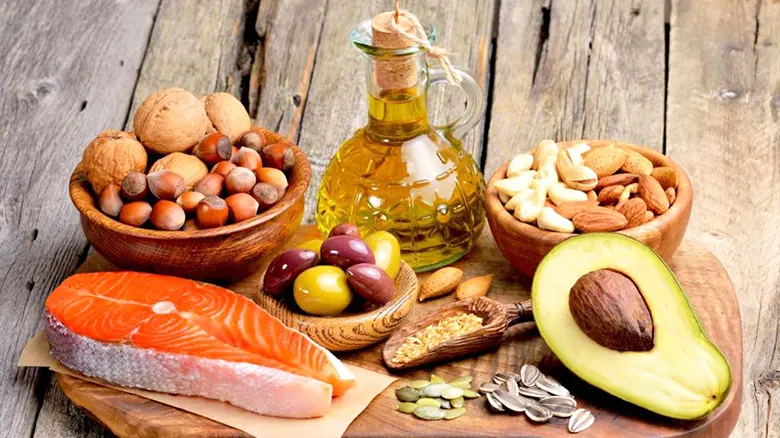
Weight loss is a complex process that involves various factors, including diet, physical activity, and lifestyle choices. When it comes to incorporating fats into your diet while aiming for weight loss, it’s essential to focus on consuming healthy fats in moderation. Healthy fats provide essential nutrients that helps to keep you satisfied, which may contribute to better adherence to a weight loss plan.
Here are some tips for incorporating good fats into your diet:
1. *Choose Unsaturated Fats:*
– Include sources of monounsaturated fats, such as olive oil, avocados, and nuts.
– Incorporate polyunsaturated fats, including omega-3 fatty acids that are found in fatty fish (like salmon and mackerel), flaxseeds, chia seeds, and walnuts.
2. *Limit Saturated and Trans Fats:*
– Reduce intake of saturated fats found in red meat, full-fat dairy products, and processed foods.
– Avoid trans fats, often found in partially hydrogenated oils mainly used in some processed and fried foods.
3. *Watch Portion Sizes:*
– Even healthy fats contain calories, so it’s important to be mindful of portion sizes. Use moderation to control your overall calorie intake.
4. *Include Lean Proteins:*
– Choose lean protein sources, such as poultry, fish, beans, and legumes, as part of a balanced diet.
5. *Prioritize Whole Foods:*
– Focus on whole, nutrient-dense foods like fruits, vegetables, whole grains, and lean proteins. These foods provide a variety of essential nutrients and can help you feel full.
6. *Stay Hydrated:*
– Drink plenty of water throughout the day. Sometimes, our bodies can mistake thirst for hunger, leading to unnecessary snacking.
7. *Regular Physical Activity:*
– Combine a healthy diet with regular physical activity. Exercise can help boost your metabolism and contribute to overall well-being.
8. *Balanced Diet:*
– Aim for a well-balanced diet that includes a mix of macronutrients (carbohydrates, proteins, and fats) and micronutrients (vitamins and minerals).
